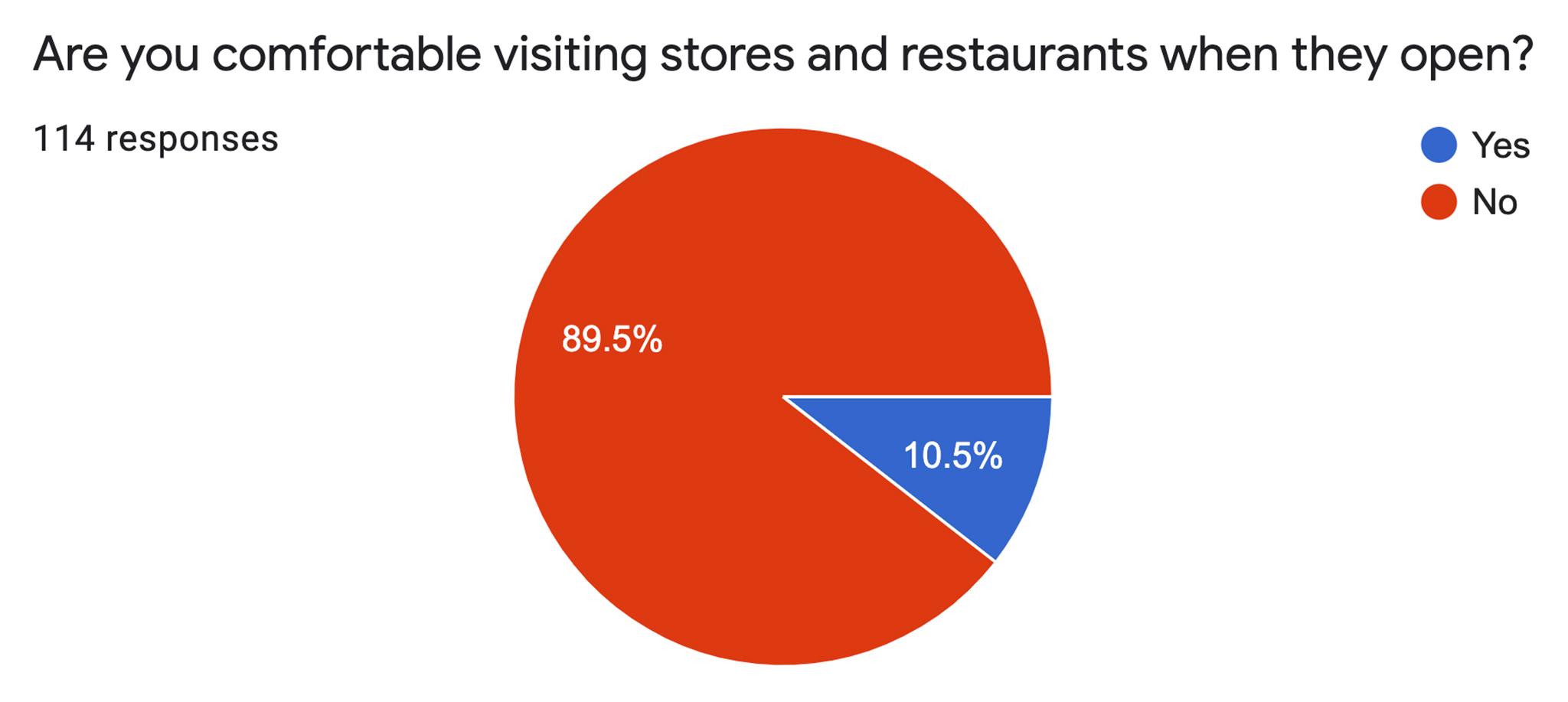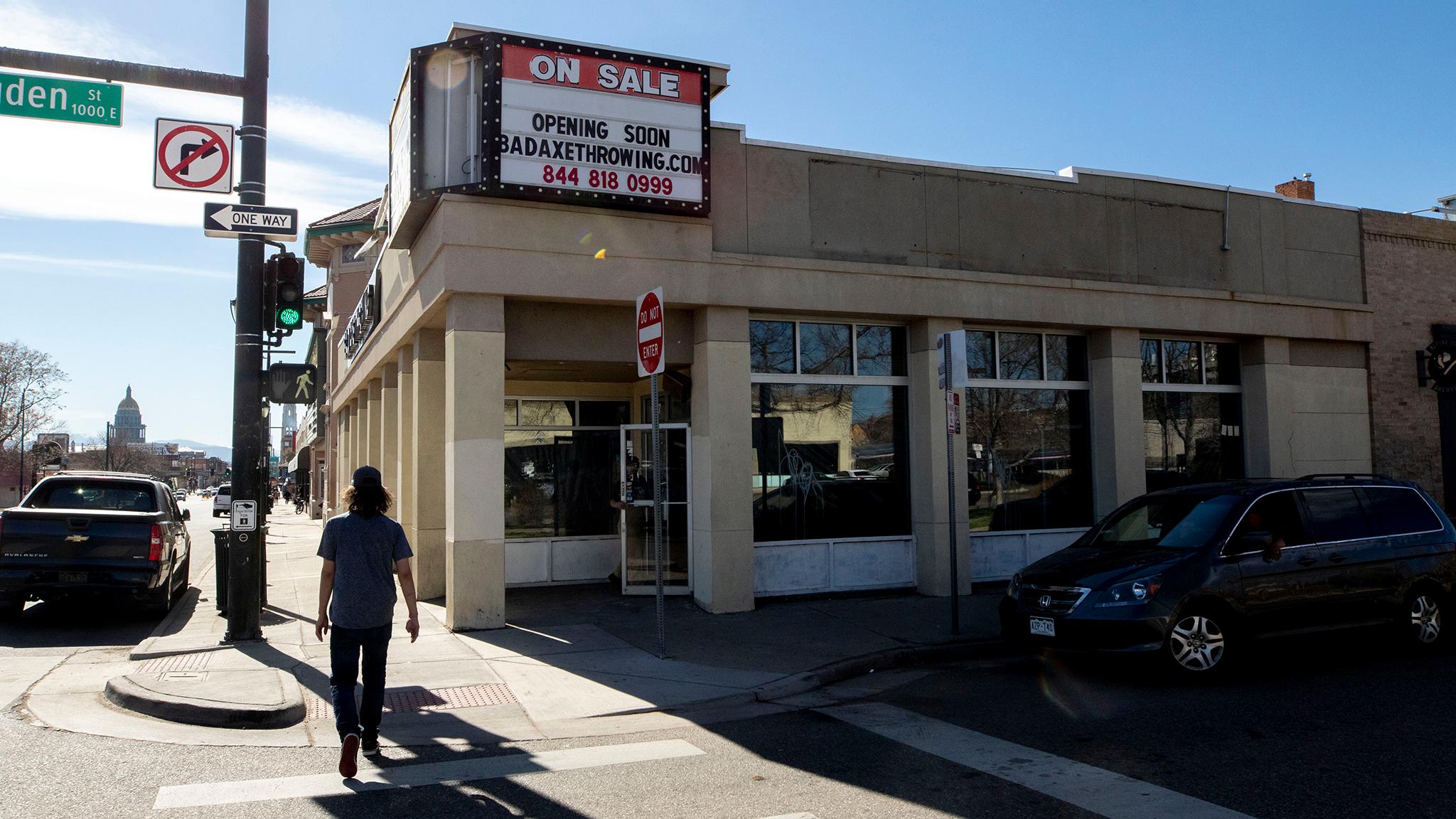We published a story last week about some business owners who are bearing the financial brunt of the COVID-19 pandemic but still aren't comfortable opening up shops when Denver lets them. In that story was a poll with just one question: "Are you comfortable visiting stores and restaurants when they open?"
Ninety percent of our 114 respondents answered "no."
This is a more complicated issue than a simple yes or no question can get at. Some businesses will begin phased openings after Denver's restrictions are lifted on May 8. Also, we know our poll is nothing close to social science. Still, it made us want to learn more.
Andrew Friedson is a professor of economics at the University of Colorado Denver. He guessed the results before we could tell him: "Everybody said no, didn't they?"

Economists are warning that America's COVID-caused recession could be the worst since the Great Depression, and Friedson said the writing is on the wall. Some people may be afraid of getting sick. Others may be short of spending power since the national economy ground to a halt. If a consumer checks either of those boxes, they're not likely to return to bars and restaurants even when the city says it's OK to.
"The picture is starting to become clear," he said. "This is bad news in any dimension."
Friedson said this is a simple calculation of risk versus reward. While we'd think of risk in financial terms outside of a pandemic, he said people are adding health considerations to their personal analyses. It's happened before.
When the zika virus had its moment in 2016, he said, people stopped buying flights to the Caribbean. He said COVID-19 is already revealing a similar pattern on a global scale. The price of an airline ticket anywhere right now, he said, is one indication that people still aren't willing to leave home.
Kickstarting the economy, he said, is all about ensuring safety.
"You've got to get the infection rate down," he said. "Until people feel safe consuming and participating in the economy, it doesn't matter."
An axe-throwing company has experienced this firsthand.
Bad Axe Throwing has locations all over the U.S. and, just before the pandemic, the company planned to christen a flagship location on Colfax Avenue. It still has a "coming soon" sign up at the old Angelo's CD's & More spot in Capitol Hill.
Mario Zelaya, Bad Axe's president and CEO, said he's holding off on the grand opening for now. He's not super-keen on putting more money into the space until he's sure people are willing to come inside and pay to throw sharp objects. So he, like many people with a business, is watching consumer confidence very closely.
Friedson said that considering when a store or venue should reopen is "the billion dollar question." Ventures need to thread the needle between bankruptcy and causing a second wave of infections.
But Zelaya has a secret weapon to help him judge his timing: a Bad Axe location in Atlanta that is doing absolutely no business.
When Georgia Gov. Brian Kemp decided to open his state last week, critics said the move was unsafe and came too early. While people did line up for haircuts and more, only two people entered the local Bad Axe shop all weekend.
"It was an enormous and catastrophic failure," Zelaya said.
While he was happy to pay some of his employees, the investment is hardly bringing in revenue. But Zelaya decided not to close shop. Instead, he's treating the venue as an experiment. As business begins to build, he'll judge when he should open other locations, like the one in Denver.
"It's a cost that we have to eat and pay right now so that we can plan for the future," he said. "There's a direct correlation between sales and consumer sentiment and spending power."
While people may start to return to retail and restaurants offering curbside pickup, he expects businesses like his that rely on social gathering and expendable income will have an extra-tough year. The slim pickings he saw in Atlanta last week, he said, point to "an extinction level of behavior" for anyone in his line of work.













